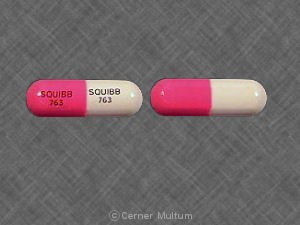
tetracycline – oral, Sumycin
Medication Uses:
Tetracycline is used to treat infections, including acne. It works by stopping the growth of bacteria. This antibiotic treats only bacterial infections and will not work for viral infections (e.g., common cold, flu). Unnecessary use or overuse of any antibiotic can lead to decreased effectiveness. Tetracycline can also be used with anti-ulcer medications to treat certain types of stomach ulcers.
How to Use:
Take tetracycline on an empty stomach 1 hour before or 2 hours after meals. If stomach upset occurs, ask your doctor if you can take this medication with food. Take each dose with a full glass of water unless directed otherwise. Do not lie down for 10 minutes after taking this medication. Take this medication 2-3 hours before or after taking products containing magnesium, aluminum, or calcium. Dosage is based on your medical condition and response to therapy. For use in children older than 8 years of age, the dosage is also based on weight. Take the drug at evenly spaced intervals to keep the medicine level constant. Continue to take this medication until the full-prescribed amount is finished even if symptoms disappear after a few days. Stopping the medication too early may allow bacteria to continue to grow, resulting in a relapse of the infection. Inform your doctor if your condition persists or worsens.
Side Effects:
Nausea, vomiting, diarrhea, loss of appetite, mouth sores, black hairy tongue, sore throat, dizziness, headache, or rectal discomfort may occur. Tell your doctor if any of these effects persist or worsen. Serious side effects may include sunburn, nail discoloration, muscle pain, difficult or painful swallowing, change in urine, brown/gray tooth discoloration, numbness/tingling of the hands/feet, unusual fatigue, signs of infection, hearing changes, easy bruising/bleeding, severe stomach/abdominal pain, yellowing eyes/skin, dark urine. Tetracycline may rarely cause an increase in pressure inside the skull (intracranial hypertension-IH). Get medical help right away if you have persistent/severe headache, vision changes, persistent nausea/vomiting. This medication may also cause a severe intestinal condition (Clostridium difficile-associated diarrhea). Contact your doctor if you develop persistent diarrhea, abdominal or stomach pain/cramping, blood/mucus in your stool. Prolonged or repeated use may result in oral thrush or a new yeast infection. Get medical help for serious allergic reactions such as rash, skin lesions/sores, itching/swelling, severe dizziness, trouble breathing, swelling/pain in the joints, chest pain, or fast/irregular heartbeat.
Precautions:
Before taking tetracycline, inform your doctor or pharmacist if you are allergic to it or other tetracyclines, or if you have any other allergies. Discuss your medical history, especially kidney or liver disease, swallowing problems, or esophagus problems. This drug may make you dizzy, so avoid activities that require alertness. Limit alcohol and sun exposure. Inform your doctor or dentist before having surgery. Use caution when using this drug in the elderly. It should not be used in children younger than 8 years of age and is not recommended during pregnancy or breastfeeding.
Drug Interactions:
Keep a list of all the products you use and share it with your doctor and pharmacist. Some products that may interact with this drug include retinoid medications, digoxin, live bacterial vaccines, penicillins, and warfarin. Some antibiotics may decrease the effectiveness of hormonal birth control, so ask your doctor if you should use additional birth control methods while taking this antibiotic. This product can affect the results of certain lab tests.
Overdose:
If overdose is suspected, contact a poison control center or emergency room immediately.
Notes:
Do not share this medication with others unless instructed to do so by your doctor. Laboratory and/or medical tests may be performed periodically to monitor your progress or check for side effects.
Storage:
Store at room temperature between 59-86 degrees F (15-30 degrees C) away from light, moisture, and excessive heat. Keep all medicines away from children and pets. Do not flush medications down the toilet or pour them into a drain. Properly discard expired or no longer needed medication. Consult your pharmacist or local waste disposal company for more details.
Report Problems to the Food and Drug Administration:
You are encouraged to report negative side effects of prescription drugs to the FDA. Visit the FDA MedWatch website or call 1-800-FDA-1088.
Conditions of Use:
The information in this database is intended to supplement the expertise and judgment of healthcare professionals. It is not intended to cover all possible uses, directions, precautions, drug interactions or adverse effects. Consult a healthcare professional before taking any drug, changing any diet, or starting or discontinuing any course of treatment.


